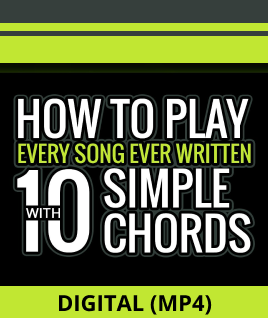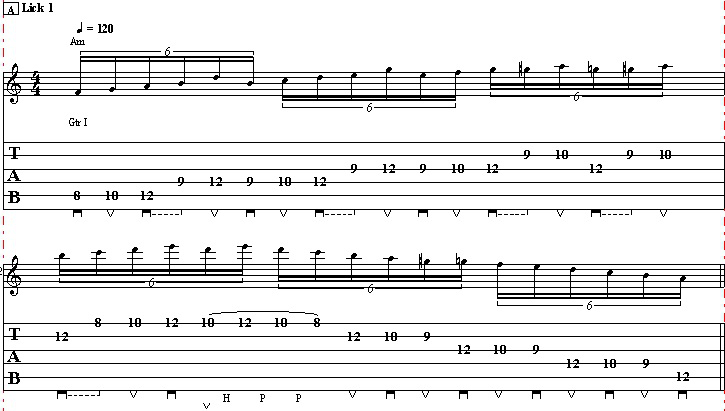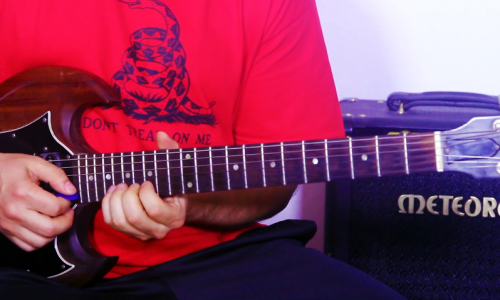Learn how to play This Boy by The Beatles with Guitar Control instructor Darrin Goodman, aka Uncle D. In this video lesson Darrin breaks down the classic Beatles tune This Boy into variations that can be played by variety of skill levels as well as variations for playing with a friend or solo. So be sure to get the free tabs to go along with the step by step video instruction and you will be able to add this classic tune to your repertoire tonight!
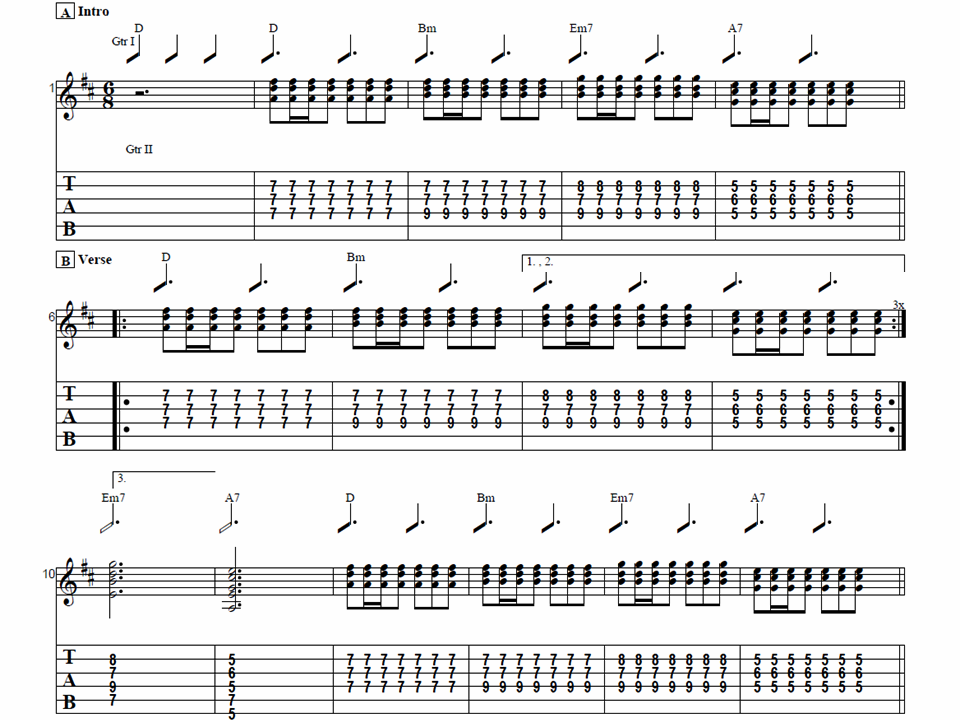
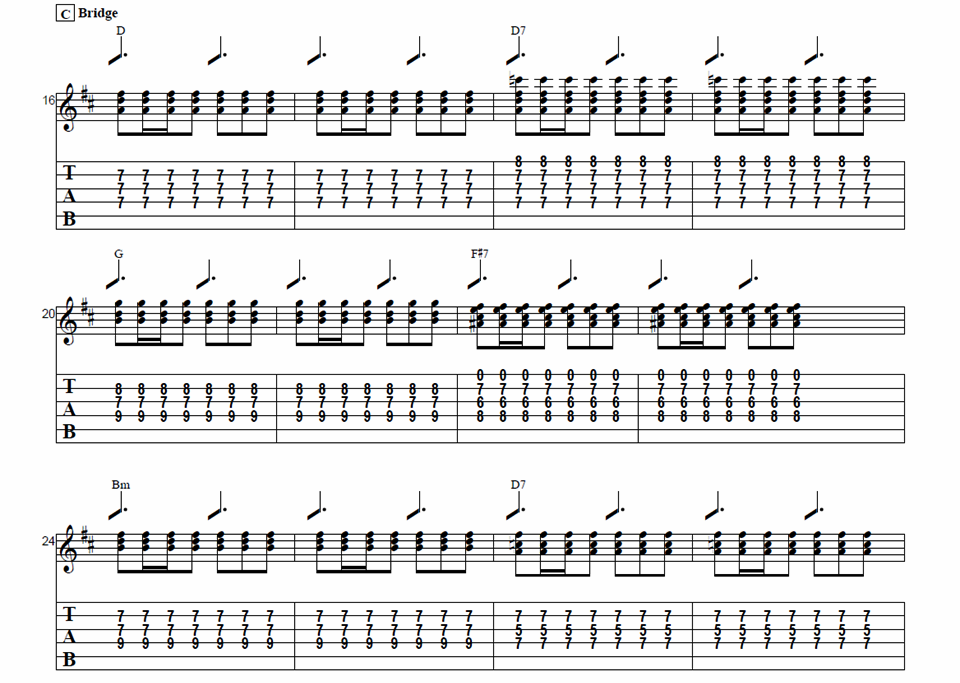
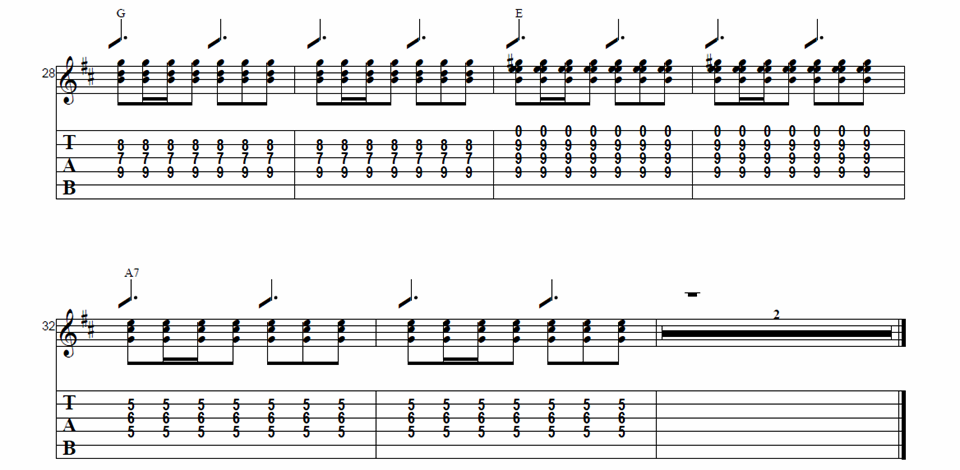
Introduction
How’s it going everybody? This is Darrin with GuitarControl.com bringing you this video lesson and today I want to show you how to play This Boy by The Beatles.
So right now Guitar Control is giving away this really cool free chord chart, there’s a link down in the description where you can get yours. It has every chord you could ever need all neatly compiled on one sheet. It’s in PDF format so you can download it, you can print it off, you can put a copy in your gig bag, put a copy where you practice; so just whatever situation you could have any chord you needed to glance and it’s a free download.
So be sure to click on the link in the description for the tabs and let’s get close up and take a look at this.
This Boy – The Beatles
All right, so there’s actually three different ways that we’re going to be looking at this, actually even probably even more than three. This is a fairly easy song and a really timeless Beatles tune. But there are a lot of variations of things you can do with chords on here and ways you can play it versus playing by yourself versus playing with a second guitar. So hopefully this will be kind of a thing that no matter what skill level you’re at there’ll be something that you could hopefully get out of this.
All right, so it’s got this kind of swing kind of feel to it because it’s in a six eight (6/8).
So as we go through this let’s kind of show you the alternative different ways to do it. So we’ve got the intro and we’ve got a D major chord, we’ve got a B minor, we’ve got an E minor seven… Okay so when you when you actually when you listen to the song it’s got the intro it starts off here with these three quarter notes of D and then it goes into the rhythm. Well there’s actually two guitar parts, so one guitar is just playing these chords in the background, so we’ve got one, two and, three, so just two strums, well if you only play that part of it by itself it’s not like super interesting. It would be hard to even tell what song it was unless you were singing it. So you could have B minor, E7 or E minor seven and then A7 and then that other little melody going over the top of it. So you could play it if you were just totally playing this by yourself you could just… or if you have a second guitar player you have somebody that’s playing those chords in the back or even without it, it still sounds pretty good… So we’ve got these that blends really well, this is a lot easier to play too, especially if you’re a beginner. So what I’m doing here is I’m barring at the seventh fret across the D and G strings. Now so for this first chord, the D, this is D if we look at our D major barre chord we’re just playing the top end of it, but you want to use your first finger here because the next chord is B minor. So all we’re going to do is take keep our first finger where it is, but take our third finger and go to the ninth fret on the D string and that’ll give us our B minor; because again if we look at our barre chord we’re just playing the top end of it… so this way you get this…
Okay then the next one we’ve got is our E minor seven (Em7); so if we look at our E minor seven barre chord and we just play the top end of it… we get the notes that are in E minor seven, but we don’t get is the E, so technically those are the same notes that are in a G major chord. So later on we’re going to be playing a G major we’re going to be able to use the same voicing. You might be thinking “how are we going to be able to do that”, but you’ll hear it when you play it even though when we play this is a G it’s going to sound like a G and when we play the B minor seven it sounds like B minor seven. So we’ve got that D, B minor and then the E minor seven and then an A7. So we do our A7 barre chord here, but we just play the top end… But what we can do here is barre across starting on the D string and we can actually play the A string open with it if we want and that’s our A7… Okay, so as far as that rhythm, it’s an eighth note, two sixteenth notes, an eighth note and then three more eighth notes. So it’s like da da da da da da… So what I’m doing to make those last ones really punchy is I’m releasing the pressure. So I’m only really hitting it technically on the downbeat and then the upbeat and it’s not really the downbeat playing them as eighth notes. I’m actually hitting the 16th note and then resting on the next 16th note… I’m only doing that on the last ones… and then I go to the next chord the B minor and do the same thing… E minor seven… A seven…
Okay so here is where it brings us to the verse. So the verse is like the same kind of thing. So we start off with D again, you can have one guitar doing… behind it if you have two or if you’re playing by yourself you could do these chords doing that same thing to get that little mute in there… I like playing it this way. I just think it’s more fun because it’s a little different and a good opportunity to work on these triad shapes and stuff. I just think it’s kind of more fun to play it this way. So it’s the same idea, we’ve got one measure D and then we’ve got one measure of B minor. Then we’re going to go to that E minor seven and also at the beginning of the verse you know so it’s a repeat. So the first two times… that’s our first and second ending. So the first two measures the D and the B minor and then the E minor seven and the A7 is the first two endings and then on the third time through its those chords, but what’s different is that instead of strumming it we’re just going to let them ring out for three beats each because they’re dotted half notes. So the whole verse with all the repeats… Now I’m on the third time; two, two, three, one, two, three and then it goes right back into… Okay, so now this leads us into the bridge section.
On the bridge section we’ve got a couple of new chords we have to look at. So we’ve got still our regular D major and then we’ve also got the D7. So for those of you don’t know what that is it’s like you take your regular D major chord and the note here on the B string moving from the third fret to the first fret, but the other two notes stay the same, so you just switch which fingers you’re using… So it’s going to be the one, two and, three, one, two and, three, one, two and three, one, two and three… All we’re going to do is for that D we’re on the seventh fret of the D, G and B string, we’re just gonna have the eighth fret of the high E and now we have our D7 because that note says C, that was a C down there and then to a G. So you could have this regular open G and this is where I was saying earlier that we’re going to be doing G here, this was our E minor seven. If we take the notes that we’ve got here to make up a G major. So the difference between the two is basically if you just take the G major and add an E in it you could look at it as E minor seven or as G6, that’s a whole other subject, but we’re just going to use that shape. So we’re going to be on this bridge we’re gonna have the… now we’re playing the G, but it’s the same that we did for E minor seven earlier… and there’s two measures long. Before everything was one measure. Now we’ve got an F sharp seven; so this F sharp seven you know if you just take your regular seven shape, but you know barring on the second fret. Here we can do it like that; if you’re more of a beginner we could just do it like this. So I’m just doing the top end of it so it’s more or less kind of what we’re doing for the A7, we’re just moving it down, but how we’re going to do it for this higher part here we’ve got the G, we’re just going to move that shape down a half step. Now we want to add in that high E… open high E string. Okay then we’re going to go to a B minor; so we’re just going to scoot back up and do the B minor shape we did before… And then we’ve got a D7; so for that D7 we’re just going to move this shape down a whole step and then drop your pinky onto the seventh fret of the B string so we’re just playing the top end of it. And again this whole part everything’s staying on two measures… F sharp seven, B minor seven. Then after that D7 we’re going to go back to G so we’re going to come back up to that same shape again, two measures of it again. Then we’ve got an E; so if you were playing it you know here it’s got this regular E major chord, but what we’re going to do is we’re coming from here is we’re going to pick up the ninth fret of the D, G and B strings, plus the high E string open. So I’m using my second finger to get the D string, third finger on the G and fourth finger on the B so that way the high E string can be open.
And then to A7 and then it has it rests and then it goes back and you know into another verse… and then it just goes back into another…
So you can see there’s a variety of ways that you can play this. So if you were just playing by yourself you could do this one or you could do the one… If I was playing it on my acoustic guitar I probably wouldn’t do this, not that you that you couldn’t do it, it’s just my acoustic guitar once you get up into that area it’s got some issues that need to be resolved and it just doesn’t sound good, but here it sounds pretty good I think… on the electric guitar and then if I find an acoustic I might play it down here… you can change up that rhythm, there’s really a million ways you could do it, it’s kind of up to you, make it your own.
Conclusion
All right, so there you have it, a slightly variable variation of This Boy by The Beatles. So if you like this lesson be sure to give me a thumbs up and leave a comment down below if you have any questions about this or other guitar related topics. If you’ve not already done so please subscribe to the channel and hit that notification bell so you don’t miss any of the content that we upload throughout the week. Well that is all I have for you today. Thanks for watching and have a great day.

